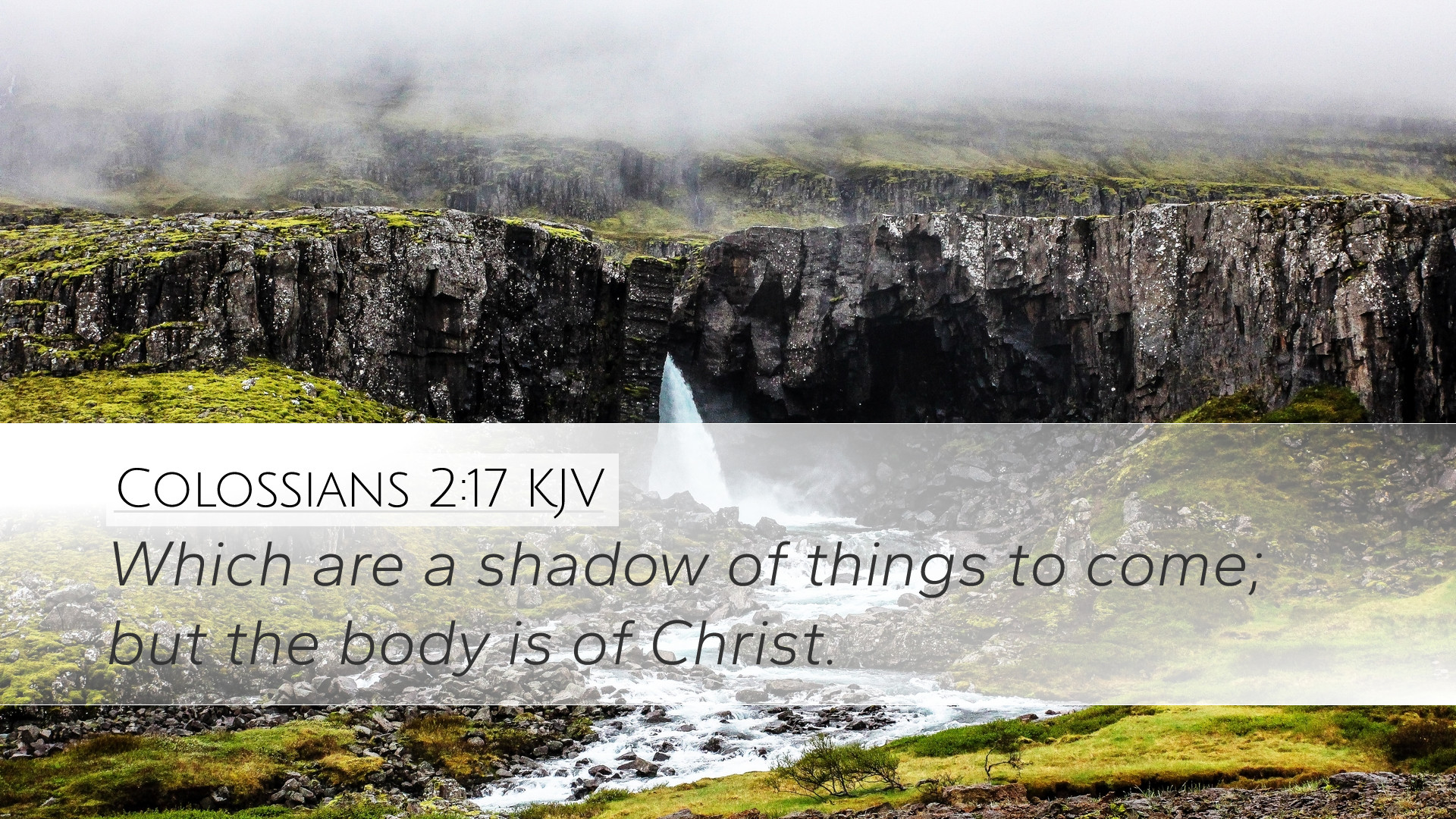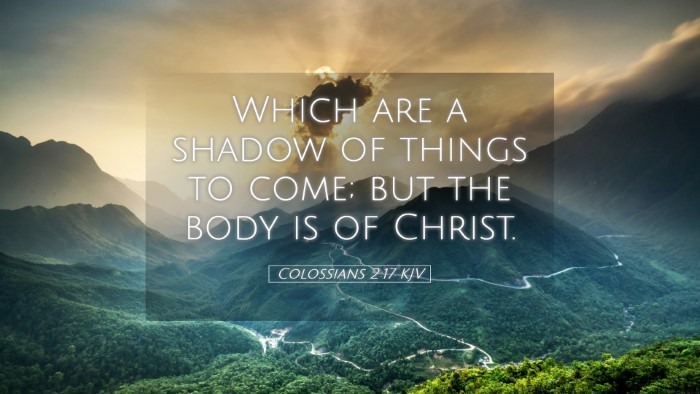Commentary on Colossians 2:17
Verse Text: "Which are a shadow of things to come; but the body is of Christ." (Colossians 2:17)
Introduction
The verse from Colossians 2:17 presents a profound theological reflection on the nature of Old Testament laws and rituals in relation to the New Covenant established through Jesus Christ. In this passage, the Apostle Paul emphasizes that the shadows of the Old Testament serve to foreshadow the reality found in Christ. This brief commentary aims to unpack the richness of this verse by synthesizing insights from notable public domain commentaries.
The Shadow and the Substance
The term "shadow" used by Paul is highly significant. It implies the idea of something that is not the full picture but rather outlines the essence of what is to come. This metaphor has been explored extensively in various commentaries:
-
Matthew Henry elaborates that "shadows" represent the types and figures of the Old Testament, which were given as representations of future truths. He elucidates that festivals, sacrifices, and ceremonial laws were not the end in themselves but were designed to point to Christ, who embodies the fulfillment of these types.
-
Albert Barnes notes that shadows were intended to prepare and lead the faithful towards a greater revelation, which is Jesus. He indicates that the observance of these old rituals without an understanding of their purpose is futile, as they were merely anticipatory, awaiting the coming of the true Lord.
-
Adam Clarke stresses the inadequacy of the law in providing salvation or righteousness. He posits that it is through the substance, which is Christ, that believers find genuine fulfillment. The 'body' of Christ signifies the reality and the true essence of what the law pointed towards.
The Role of Christ
In the latter part of the verse, Paul contrasts the "shadow" with the "body," which exclusively belongs to Christ. This contrast is crucial in understanding the entirety of Christian doctrine:
-
Matthew Henry states that Christ is the substance of every festival and every sacrifice. The reality of His incarnation, death, and resurrection transcends the temporary and ritualistic forms of worship that preceded Him.
-
Albert Barnes adds that to focus on the "shadows" at the expense of the "body" leads to spiritual blindness. The culmination of God's redemptive plan is found in Christ alone, and believers are called to live in the light of that truth.
-
Adam Clarke reinforces that to reduce Christianity to mere external observances is to overlook the transformative power of its true essence—the salvation that comes through faith in Jesus Christ.
Practical Implications
The theological insights derived from Colossians 2:17 usher in critical practical considerations for believers, emphasizing a few overarching themes:
-
The Fulfillment of the Law: Believers are reminded that Christ’s fulfillment of the law allows them to step beyond ritualistic observance into a genuine relationship with God. They are to recognize that the Old Testament laws were never an end but rather a means to point towards the greater reality of Christ.
-
The Danger of Legalism: The apostle's warning against the adherence to mere forms of religion is applicable today. Believers must guard against the temptation to return to legalistic practices that do not reflect the heart of the gospel.
-
The Focus on Christ: Christians are called to center their lives and worship on Christ who is the embodiment of all spiritual reality. Their faith must rest on the living Christ, acknowledging Him as the source of their salvation and spiritual life.
-
The Expectation of Future Realities: The mention of “things to come” encourages believers to look forward to the fulfillment of God's promises and the completion of His kingdom. The shadows of the past assure believers of the future realities they will experience in Christ.
Conclusion
Colossians 2:17 serves as a profound reminder of the transition from the old covenant shadows to the new covenant reality found in Christ. Public domain commentaries from Matthew Henry, Albert Barnes, and Adam Clarke reflect the importance of understanding the purpose of the Old Testament and the profound fulfillment in Jesus. Pastors, students, theologians, and Bible scholars are encouraged to delve deeper into these truths, allowing them to shape their understanding of faith, worship, and the grace of God that culminates in Jesus Christ.


